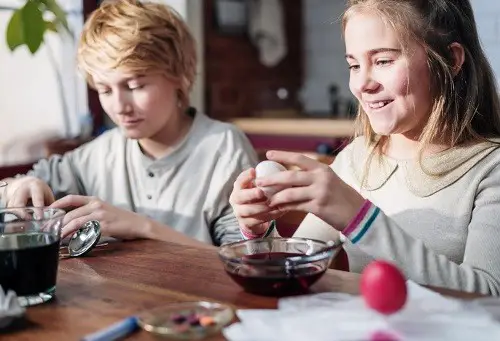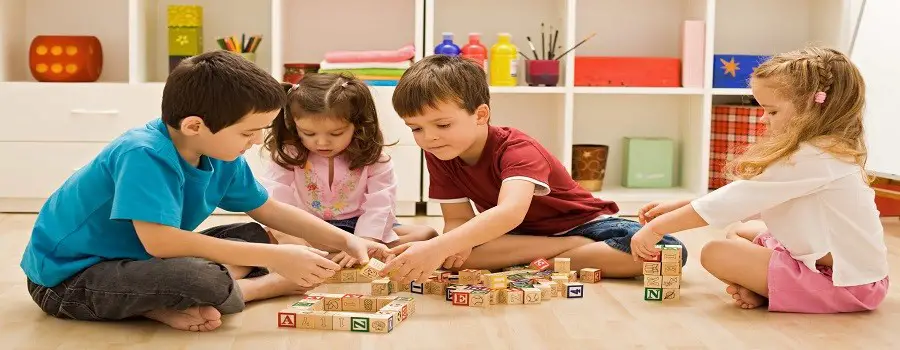Last Updated on January 6, 2025
Play-based learning is a common term in the early childhood education globe. What does it means?
The right brain creates first and does so by the time children are 3-4 years of age. On the other hand, the left brain does not fully come online until children are around seven years old; thus, the first 7 years are recognized as critical in child development.
Play-based education fits the developmental demands of children. The No Child Left Behind movement seemed to mark the importance of play-based learning in favor of more specific instruction and testing in the lower grades.
However, researchers and teachers concur that play is an important part of childhood learning that should not be sidelined. Play-based learning is a sort of early childhood education based on child-led and flexible play. If you’re picturing preschoolers finger paint or ‘playing house, you’re spot on.
The play itself is a voluntary, delightful activity with no purpose or end goal. Taking the initiative, focused interest, and inquisitiveness regarding the globe are all a part of the play.

Elements Of Play-Based Learning
Self-selection: A child volunteer chooses to play, how they’ll play, and how long. An adult might launch play in as much as she or he invites or recommends play; however, the child determines the rest.
Enjoyable: Play is enjoyable for the child. This emotional element is important. There may be some disappointments or arguments throughout the play; however, total, it’s satisfying.
Process-oriented: There is no end or learning objective. Rather, it’s the process of play that’s important. Pretend: Play typically includes imagination, ‘pretend’, or ‘playing pretend.’
Unstructured: A child has ample time to explore as well as found throughout the play. They’re routed by their rate of interest, not by any proposed regulations or strategies.
Read More – Selecting The Right Baby Diaper
Understanding The Value Of Play
When children participate in real‐life and imaginary activities, play can test children’s reasoning. Children find out finest with first-hand experiences play motivates, promotes, and sustains children in developing abilities, principles, language purchase, interaction abilities, and focus.
Throughout the play, children utilize all of their detects, communicate their ideas and emotions, discover their environment, and attach what they currently understand with new expertise, skills, and perspectives.
How Play-Based Learning Work?
Play-based education symbolizes various tasks incorporated in the day that motivate school readiness, build academic capacities, and create a long-lasting love of learning. A vital proficiency ability for analysis is the purchase of language, as revealed by children’s vocabulary and capability to articulate their ideas.
The depth of a young child’s language skills like early theoretical mathematics is a lot more predictive of long-lasting reading than simple measures of early literacy like letter acknowledgment.
Hands-on experiences in art, scientific research, and making such as cooking, having fun with sand as well as sticks and all-natural materials, painting, knitting as well as structure are great, as well as developmentally suitable, methods for kids to construct their great electric motor coordination and also the musculature for later writing.











